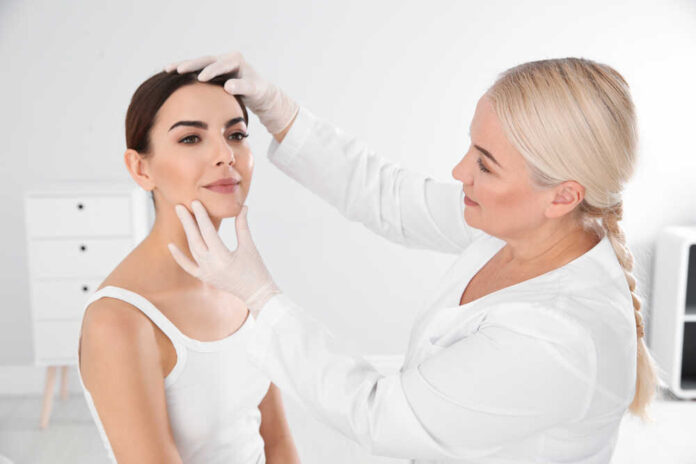
Taking care of your skin is important not only for appearance but also for overall health.
Our skin protects us from the elements, helps regulate our body temperature, and gives us another sense to experience the world around us.
However, many factors can damage our skin, affect its appearance, and threaten our health and well-being.
Here are 6 things dermatologists recommend you do to keep your skin healthy in 2023:
Always Wear Sunscreen When Outside
The sun is one of the biggest threats to our skin, and dermatologists strongly recommend wearing sunscreen every day, no matter the weather or season.
More than just sunburns, UV rays from the sun damage your skin cells and contribute to the development of skin cancer and signs of aging (wrinkles, dark spots, and fine lines).
Sunscreen acts as a physical barrier, reflecting and scattering UV rays before they can penetrate the skin. You’ll need to choose a broad-spectrum sunscreen with an SPF of at least 30 to get full protection against both UVA and UVB rays.
Apply sunscreen to all exposed skin, including the face, neck, arms, and legs, and reapply every two hours, especially after swimming or sweating. You should also protect your lips with a lip balm that contains sun-blocking ingredients.
Stop Using Tanning Beds
The sun is not the only source of harmful UV radiation.
Tanning beds emit UVA rays, which penetrate deep into the skin and cause premature aging, wrinkles, and age spots. They also emit UVB rays, which are the primary cause of sunburns and skin cancer.
Although you might like the look of a nice tan on your skin, dermatologists strongly advise against using tanning beds. Tanned skin is not a “healthy glow”. It is your body’s reaction to cellular damage and a desperate attempt to prevent further disruption of DNA processes.
Even just one single use of a tanning bed more than doubles your risk of developing skin cancer. And people who use tanning beds multiple times a year are putting themselves at a very high risk of an easily avoidable case of skin cancer.
Turn Down The Hot Showers
Hot showers may feel good, but they strip the skin of its natural oils and leave it feeling dry and tight. High temperatures can cause the skin’s lipid barrier to break down, which can result in increased water loss and dryness. In addition, excessively hot showers can also remove the beneficial bacteria that live on the skin, which can lead to irritation and infections.
Dermatologists recommend taking mildly warm or cool showers instead, and using a gentle, fragrance-free soap to avoid further irritation. After showering, pat your skin dry and apply a moisturizer to lock in moisture and protect the skin’s lipid barrier.
Throw Out Expired Skin Products
Expired skincare and cosmetic products often contain pathogenic bacteria and other harmful substances that can cause skin irritation, breakouts, and infections. Additionally, the efficacy of the product can also decrease over time, making it less effective at addressing your skin concerns.
Dermatologists recommend checking the expiration dates of your skincare products regularly and throwing out any that are past their prime, even if they look okay. This is especially important if you use any natural products that do not contain preservatives.
Quit Smoking
Smoking has a damaging effect on your skin, leading to premature aging, wrinkles, and a dull, sallow complexion. The nicotine in cigarettes constricts blood vessels, reducing the flow of oxygenated blood and nutrients to the skin. Plus, the smoke and chemicals in cigarettes tend to break down collagen and cause damage to your skin’s cells and tissues.
Quitting smoking is one of the best things you can do for your skin and your health. By quitting, you can help reduce the damage to your skin, improve its appearance, and reduce your risk of cancer and other health problems.
Routine Dermatology Checkups
Regular dermatology checkups are crucial for maintaining healthy skin. Your dermatologist will examine your skin for any signs of skin cancer, pre-cancerous growths, and other skin concerns during these checkups. They can also help you create a personalized skincare routine tailored to your specific needs and goals.
Dermatologists recommend scheduling a routine checkup at least once a year, or more frequently if you have a family history of skin cancer or other skin issues. It is also important to schedule a checkup if you have any concerning symptoms, such as changes in the appearance of a mole or a new spot on your skin.
Early detection is key in preventing serious health problems and preserving the health and appearance of your skin.






















